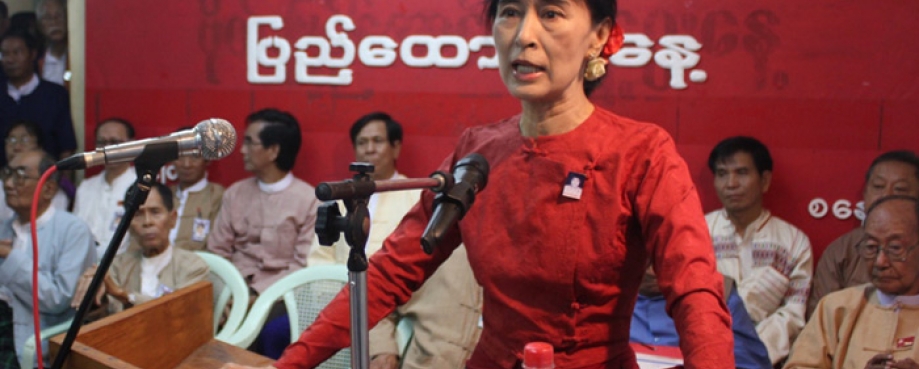
Like many companies, ETI’s members are weighing up the risk and reward of moving into Burma, now that EU and US sanctions prohibiting trade have, for the time being at least, been eased.
It’s a time of particular interest for us when trading conditions in a country undergo a big change – we look at the new opportunities for companies to raise the bar of responsible sourcing and to drive improvements in workers’ conditions.
Calls for investment in Burma have come from both the President Thein Sein and opposition leader Aung San Suu Kyi. But with the reform process far from complete companies will have to work particularly hard to mitigate labour rights risks and to protect a still vulnerable workforce.
So we listened with interest to former UN Special Representative on Human Rights John Ruggie, briefing companies on the complexities they will meet during a recent Foley Hoag webinar. His key advice when it comes to Burma?, ‘Caution and prudence are your friends’. Companies need to bear in mind that neither the EU nor the US have completely lifted their respective sanctions and if they see the fledgling democracy falter, there’s a risk they’ll shut the door once more, leaving the early-moving companies caught in a storm fuelled by weak rule of law.
But even if this doesn’t happen, there are many other possible pitfalls, not least the difficulty of avoiding trading with the many businesses accused of being bolstered unfairly by government or military-linked cronyism. The military continues to play a key role in Burma – it’s huge, and while no longer directly in power, military personnel hold significant stakes in many of the businesses that multinationals will encounter as they seek new partners. Companies sourcing from Burma will also need to be alert to a host of other significant risks relating to land rights, ethnic conflict, a very poor labour practices record, lack of privacy and freedom of information, and corruption.
Help is available to companies starting on this journey, in the form of the UN Guiding Principles originally drafted by Ruggie, and the OECD guidelines for multi-national enterprises.
Neither were designed specifically with Burma in mind, but it’s significant that both were referenced when the EU lifted its sanctions in April. Both frameworks are intended to diminish the risk of companies causing or being complicit in human rights abuses or environmental harm, and to help them demonstrate that they are implementing international best practice.
The Guiding principles rest on 3 pillars that we’ve explored in other blogs on this site:
- Protect - the state duty to protect human rights against abuse by third parties including business (this includes the home states of companies)
- Respect - corporate responsibility to respect human rights, which means to act with due diligence to avoid infringing the rights of others and to address adverse impacts that occur
- Remedy - both State and business responsibility to provide greater access by victims to effective remedy, both judicial and non-judicial
It’s notable that the due diligence element of the guidelines makes new and significant demands of companies, including:
- Conducting human rights impact assessments
- Integrating human rights concerns into company practices
- Monitoring and assessment of implementation of human rights policies and mitigation plans
- Establishing grievance mechanisms
Since the key challenge is managing the actions of Burmese trading partners that could land western companies in hot water, the due diligence they need to impose must be more robust than in other countries they are used to sourcing from. A simple starting point for companies, advises Ruggie, might be to list the many different ways in which they could be accused of human rights abuses committed by other parties they partner with, and then write as many corresponding safeguards as possible into the contracts they sign with those parties. Businesses that seek long-term involvement however, will need a more nuanced and locally-engaged approach if they are to stay the course.
Companies should also factor in working with newly formed local trade unions. Banned for decades, more than 130 new unions have applied for registration since the restriction on them was lifted earlier this year and the International Trade Union Confederation (ITUC) and Federation of Trade Unions-Burma (FTUB) are setting up an office in Rangoon to help workers across the country organise. (see the ITUC position here). It’s no surprise that reports of industrial unrest are increasing as workers find their voice and begin to articulate their demands with greater confidence.
The opportunities to invest in Burma are attractive to many businesses, but the risks, says Ruggie, are ‘enormous’, and different to those companies have encountered elsewhere. The poor human rights record of Burma and its oppressive former regime, coupled with the popularity of reform figurehead Aung San Suu Kyi, means that companies keen to explore trade with Burma will do so in a ‘fishbowl’ environment, under intense scrutiny from human and labour rights groups.
This adds up to a highly elevated level of legal and reputational risk. But by understanding the local context and following the UN Guiding Principles and the OECD guidelines, companies can reduce that risk significantly and show that they are taking robust measures to protect the most vulnerable people in their supply chains.
At ETI, we’re convening discussions among our members with a view to developing guidance of our own to support responsible sourcing in this most difficult trading environment. If your company sees itself trading in Burma in the future, let us know how you plan to prepare.
